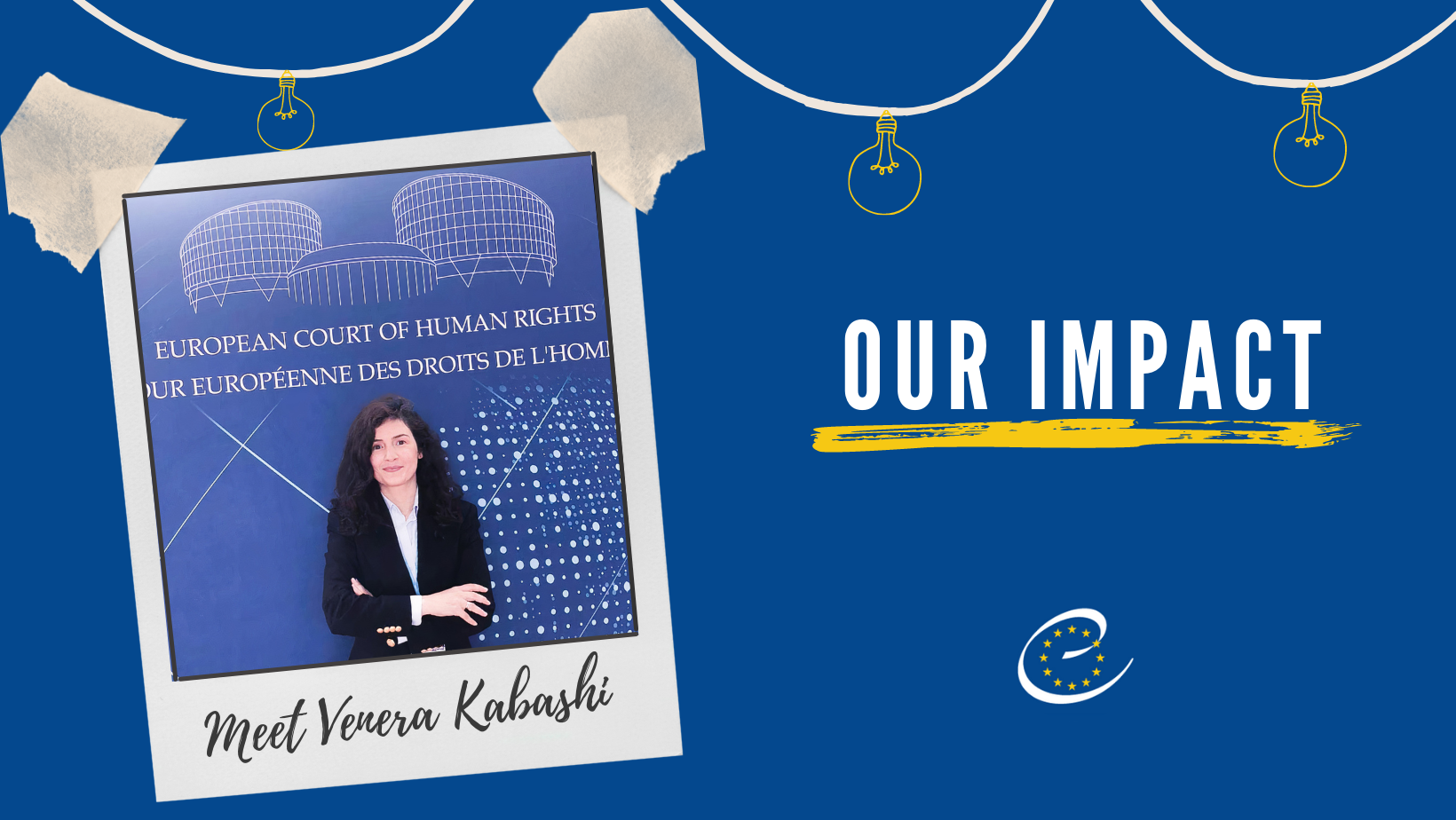The first thing you notice when you speak with Venera is her passion and commitment to her job when she talks about her career journey that brought her to pursue the dream of being a successful human rights lawyer currently based at the European Court of Human Rights (ECtHR) in Strasbourg.
Since her time as a law student, Venera has always been passionate about human rights. After completing her bachelor studies at the University of Prishtina she was awarded with the European Union Young Cell Scheme scholarship that allowed her to continue her postgraduate studies in the United Kingdom, where she specialised, among others, in human rights and on the theory and interpretation of the European Convention on Human Rights.
As she recalls her experience as a law student, Venera tells us that the possibility to study and interpret the European Convention on Human rights is what convinced her to pursue a career as a human right lawyer, helping those in need and making a real impact. Following what she describes as an enriching academic experience at the University College London, Venera came back to Pristina and started her career working as a Legal Advisor for public institutions. She progressed to become Senior Legal Advisor at the Constitutional Court, where she worked hand in hand with the Court’s judges, assisting them on constitutional law and human rights matters, while providing legal advice on high level cases.
The real turning point in her career journey was when in 2015 she had the opportunity to benefit from a five months working placement at the European Court of Human Rights in Strasbourg through the Council of Europe co-operation project “Improving the Protection of European Human Rights Standards by the Constitutional Court”[1]. “Having the chance to participate as a legal advisor to the placement programme at the Strasbourg Court is by far the most enriching professional experience in my career,” says Venera. She is confident that the possibility to take part in the placement programme advanced her legal research skills and her capacity to consistently interpret human rights and fundamental freedoms as well as apply and adapt the methodology of the ECtHR to the work of the Constitutional Court. “To become an expert and a good human rights lawyer, first-hand experience at the European Court of Human Rights is crucial. The placement programme enabled me to advance my skills to the required level needed for the application of the relevant case law to specific cases the Constitutional Court deals with” she stresses.
Few years after her experience in Strasbourg, Venera was appointed as the Chief Legal Advisor at the Constitutional Court, where she is responsible for the supervision of the legal work carried by the Legal Unit. Talking about that role, she mentions once again how the experience gained during the period of her placement enabled her to lead the Legal Unit at the Constitutional Court towards the application of the highest qualitative standards needed for correct and consistent application of Convention standards.
Venera is currently back at the Strasbourg Court, where she is engaged in a further one year placement made possible thanks to the partnership and co-operation established with her team during the time of her first placement. Meanwhile, she is also completing her PhD in Switzerland on European Convention on Human Rights violations in respect of Western Balkans and she is thrilled to see where this new exciting professional experience will bring her next.
[1] The first phase of the project “Improving the Protection of European Human Rights Standards by the Constitutional Court” ran from January 2014 until December 2016, and had the placement of eleven legal advisors (seven women and four men) from the Constitutional Court to the European Court of Human Rights in Strasbourg. The second phase ran from February 2019 until June 2021 and had the placement of four judges (three men and one woman) and three legal advisors (two men and one woman).




